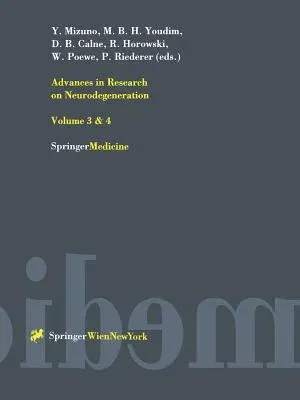Advances in Research on Neurodegeneration: 3 & 4 (Softcover Reprint of the Original 1st 1997)Paperback - Softcover Reprint of the Original 1st 1997, 22 July 1997

Qty
1
Turbo
Ships in 2 - 3 days
In Stock
Free Delivery
Cash on Delivery
15 Days
Free Returns
Secure Checkout
Part of Series
Journal of Neural Transmission. Supplementa
Print Length
280 pages
Language
English
Publisher
Springer
Date Published
22 Jul 1997
ISBN-10
3211829342
ISBN-13
9783211829349
Description
Product Details
Book Edition:
Softcover Reprint of the Original 1st 1997
Book Format:
Paperback
Country of Origin:
US
Date Published:
22 July 1997
Dimensions:
27.94 x
20.96 x
1.57 cm
ISBN-10:
3211829342
ISBN-13:
9783211829349
Language:
English
Location:
Vienna
Pages:
280
Publisher:
Weight:
671.32 gm

